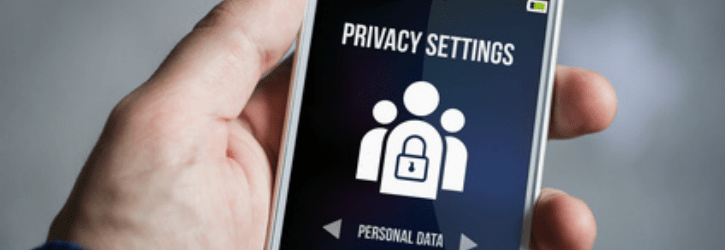Welcome To The Data Leak Lawyers Blog
We focus on the latest news surrounding data breaches, leaks and hacks plus daily internet security articles.
We focus on the latest news surrounding data breaches, leaks and hacks plus daily internet security articles.

Scams and fraud from data breaches and data leaks are common. In fact, scams and fraud are common anyway, with more than 10,000 cases reported last year, which was a five percent rise on the previous year.
It can be so easy for people to fall victim to scams and fraud that stem from data breaches, so the big question is how people can protect themselves, and what the organisations who hold our money – and data – can do to protect us as well. The burden of responsibility is a two-way street, and there is plenty that banks and organisations can do to better protect us.
read more

YouTube has been accused of illegally collecting children’s data by Consumer Rights groups who have filed a legal complaint against them.
The Google-owned video and music platform is supposed to be for persons aged 13 and older, yet studies indicate that it’s most popular with children aged between 8 and 12.
According to the concerns raised and the complaints filed, YouTube is illegally collecting the data without parental consent, and they know that they’re doing it; raising fear that they’re in breach of data protection legislation.
read more

Although many of us are grateful for the help and protection our police force provide us, they are not above the law; even when it comes to the Data Protection Act.
In fact, the police service is unfortunately at the centre of a large volume of data breaches, studies have confirmed.
As a victim of a police data breach you are entitled to claim for data protection compensation – just because it’s the police does not exempt them from legal action and in this case, you can see the weight of the law applied to one force in particular who were fined £130,000.00 for a huge data breach.
read more

If Equifax thought that news coverage of their huge data protection breach from last year was going away, they’re wrong.
We’re acting for a number of victims in the Equifax data breach after their servers were hacked into because they failed to update a known security soft spot, and detect the ongoing vulnerability. As a result of their clear failure to keep their systems updated, we consider there is a case for compensation.
Now, news of an Equifax executive being charged with “insider trading” has further fuelled the anger against the credit-monitoring giant whose servers were hacked last year.
read more

The Information Commissioner’s Office (ICO) issued The Lead Experts Limited (TLEL) a £70,000.00 fine for reportedly making 111,072 unwanted nuisance calls.
TLEL violated data protection principles and the Privacy and Electronic Correspondence Regulations (PECR) when it failed to obtain real and proper consent from the people they had bombarded with nuisance calls, asking if they wanted to reduce their energy bills.
Today, direct marketing is easier than ever. Making calls to tens of thousands of people is incredibly feasible, and it doesn’t cost a lot to do it.
read more

Based in Dartford, True Telecom Limited has been fined by the Information Commissioner’s Office (ICO) for illegally calling people to advertise their services.
The Telephone Preference Service (TPS) reported a number of complaints from individuals who received calls from True Telecom despite being signed up to TPS to specifically let organisations know not to contact them for direct marketing purposes. Organisations who call people to advertise their products and services must first receive consent before they do so.
read more

Australia was recently hit by a huge data breach when a misconfiguration of a cloud storage system reportedly compromised some 50,000 employee records.
This is thought to be the second largest data breach in Australian history.
A number of employee records were compromised for several government departments, including 3,000 from the Department of Finance; 1,470 from the Australian Electoral Commission; and 300 from the National Disability Insurance Agency.
read more

Corporate finance firm Deloitte disclosed a data breach that compromised its internal emailing system, but apparently the breach only affected a “very few” clients.
Those “very few” clients may be not-so impressed with, what appears to be, the company’s attempts to shrug the data breach off as less-than serious just because a small minority of clients were affected.
The company ironically recently rolled out its Cyber Risk Services and even received applause for its growth in cyber intelligence. This kind of breach for a firm of this nature – much like the Equifax breach – is incredibly worrying.
read more

Car-sharing company, Uber Technologies, are facing further questioning from governments as they demand answers over alleged violations of multiple laws and regulations stemming from the 2016 Uber data breach that saw a reported 57 million customers and drivers have their personal information exposed.
The failure to disclose the breach is not being accepted by some regulators and lawmakers. A number of lawsuits have been launched against the popular company with allegations of consumer fraud and deceptive business practices.
read more

The British government have struck a £210 million deal with South Korean technology giant, Samsung, to arm its emergency services with custom toughened smartphones.
Britain’s police, paramedics and fire crews will be supplied with Samsung smartphones to carry out their jobs more easily and efficiently. For £210 million, Samsung will provide the services with 250,000 smartphones on a three-year deal. These devices are said to be water-resistant and will be connected to 4G internet.
read more
Fill out our quick call back form below and we'll contact you when you're ready to talk to us.